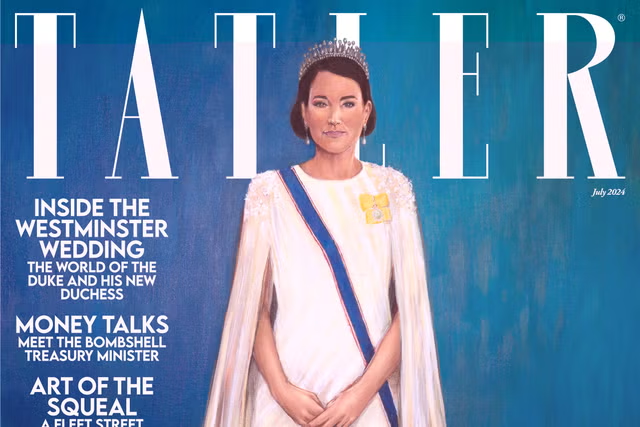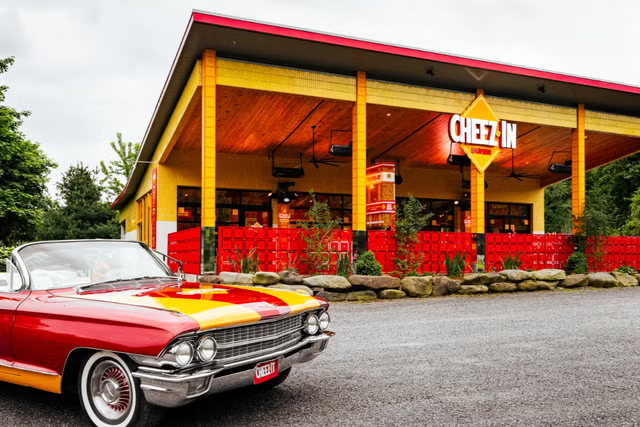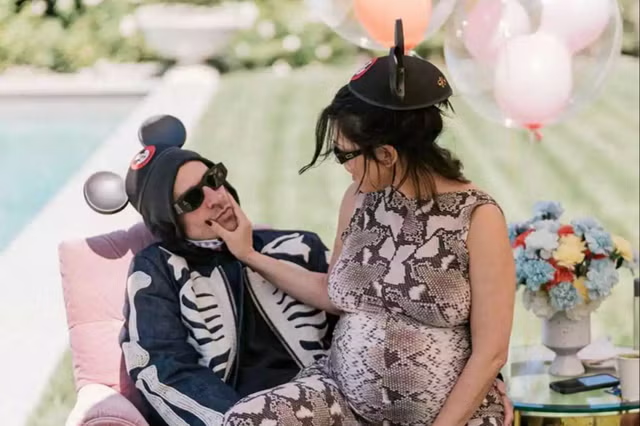The fleeting glances across the ballroom. The tears springing to your eyes at the very thought of someone. The tension you could cut with a knife. Netflix’s Regency romp Bridgerton would have us believe that the current third season – which began last week – is all about the will-they-won’t-they romance between bookish Penelope Featherington (Nicola Coughlan) and boy-next-door Colin (Luke Newton). But when I watched, the real tension was between two of the leading ladies. Rather than willing the romantic leads to get together, I was struck by the sadness of a rift between best friends Penelope and Eloise (Claudia Jessie).
We’ve seen this teenage duo go from carefree, witty observers of London’s social scene to icy enemies who can’t bear to be in the same room. They comforted one another and planned for the future with an easy intimacy, two misfits who’d found their tribe. Watching the current breakdown of the “Peneloise” relationship (fans’ hybrid name for the two beloved characters), I really felt it in my gut.
I knew these feelings were echoes of my own friendship break-up – a falling-out with a cherished friend from my teenage years. It happened in our mid-twenties, as other friendships and relationships pulled us in different directions. She got into a relationship with a man who I felt was controlling, and seemed to withdraw from her usual friendships and hobbies. (I’m sure she would say her pull-back was just the reality of being in her first good romantic relationship, and I was unsupportive of her choices.) Harsh words were exchanged. It felt irreparable.
At the time, we’d left the structures of school, university and our former social circles – so, unlike “Peneloise”, we had little reason to be around each other. She stayed with the boyfriend and the rift never healed. Other friends of hers seemed to fall by the wayside, too. When she got married a few years later, it felt surreal looking at a photo of her surrounded by bridesmaids and new friends, not one of whom I recognised.
While I’ve shaken off countless romantic heartbreaks through the power of self-reflection, running and high doses of Beyoncé, that one formative, platonic break-up still bothers me. My teenage best friend occasionally appears in my dreams – not true of any of my ex-boyfriends, however traumatic the parting. It seems that ex-friends have the power to stick in our psyche and impact our lives for far longer than ex-lovers.
Counsellor Georgina Sturmer, who specialises in issues including relationship dynamics and loss, says she hears this a lot from clients. “We don’t have a road map for friendship break-ups in the way we do for romantic relationships,” she tells me. With a romantic partner, we’ve seen endless blueprints and scenarios in arts and culture for break-ups: the old clichés of crying with your friends and cracking open the ice cream. Instead of this, we often see an idealised “sisterhood” of female friendships on screen and in books. If we can’t hang on to friendships long-term, the sense of failure can be potent.
“The state of our friendships is also a huge part of how we feel about ourselves,” says Sturmer. “When we have people who care about us, it makes us feel resilient, like someone has our back. When that goes, it can be incredibly isolating.”
Georgina Sturmer, counsellorIt is grief, it is loss – and it can be even harder with friendships because we can often still see what they’re up to, on social media, or through mutual friends
Rejection from friends can take us back to the playground, she adds, in a way that the end of a romantic relationship might not. “You can feel, ‘If that person doesn’t want to spend time with me, it must mean something really deep and personal about me’.” That’s certainly true of my ex-friendship; years on, I scarcely spare a thought for the way ex-boyfriends view me, but I hate to imagine that my former friend is out there thinking badly of me.
I asked friends and acquaintances about their platonic break-ups, and a surprising amount of them felt moved to send me heartfelt messages and voice notes about their experiences. One pointed out that there isn’t usually an official “end” to a friendship, or a final conversation, as there is with a long-term partner. More often, it’s a trivial argument or a passing comment you never bounce back from.
Some told me it felt more like losing a member of the family than a partner. “We were inseparable from the ages of 17 to 25,” says one friend of a now-lost relationship. “It messed me up more than a relationship ending.”
I ask Sturmer how we can get closure on rifts that still haunt us. “I ask clients, what are you looking for from the situation?” she says. “An apology? An explanation? Are you looking to explain yourself, if you feel you acted badly?” If that sort of conversation isn’t possible, she encourages writing down what you wish you could say to that friend, or even speaking the words out loud.
Whatever you do, she says, do not minimise how important that friendship was to you, or feel you should breeze past the sadness around it. “It is grief, it is loss – and it can be even harder with friendships because we can often still see what they’re up to, on social media, or through mutual friends.”

One thing I will say for having an early, catastrophic friendship breakdown is that it has made me hyper-aware of cracks in my close friendships since. One of the reasons for our fall-out was a lack of communication and care for each other in the last year or two of our relationship; now, if I see myself headed in a similar direction with a friend, I make sure we address it. I’d much rather have a difficult conversation early on than let another friendship drift to the point of no return.
My big reckoning 11 years on was: would my friend and I have stayed close had I been a little more emotionally mature, taken a breath and tackled our rough patch in a more empathetic way? Perhaps. In the end, I fear our break-up was values-based: if it happened today, I’d still think that replacing all of your old friends with one man was a poor choice, while she’d still think life and love was about moving onwards and upward, shedding old skin. Perhaps our rift was always on the cards; we just didn’t know it as starry-eyed teens.
On screen, I hope Penelope and Eloise work things out, and go on to gossip about “the ton” through many more series of Bridgerton. But I also accept that friends can just be present in our lives for “a reason, a season or a lifetime”, as poet Brian A Chalker put it. I still have good memories of our years together: drinking cheap supermarket wine, ordering pizzas, watching Dirty Dancing until 1am. Perhaps it doesn’t matter who was wrong, who was right, or how well we handled it. Perhaps all we can do is get to the point of peace? Of saying: I think about her often, and I wish her well.
Disclaimer: The copyright of this article belongs to the original author. Reposting this article is solely for the purpose of information dissemination and does not constitute any investment advice. If there is any infringement, please contact us immediately. We will make corrections or deletions as necessary. Thank you.



